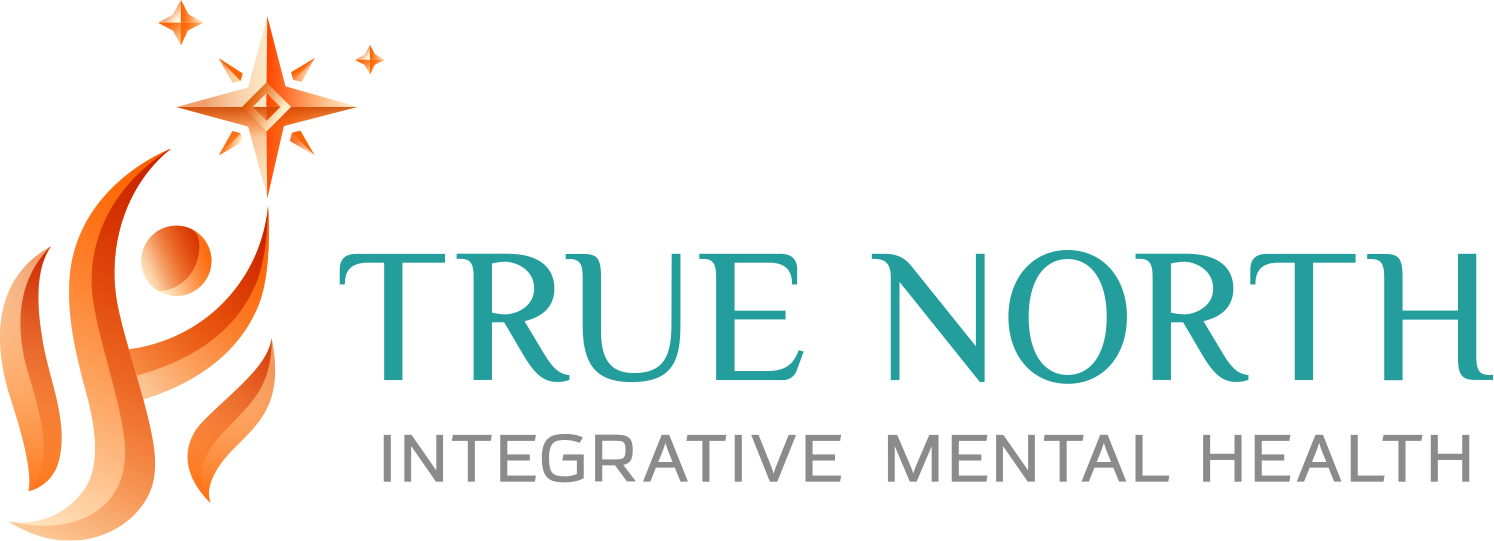Things We Now Know about Treatment-Resistant Depression
Dr. Jamie Rogers • March 26, 2024
Dealing with depression is an incredibly challenging, often isolating experience. For the over 16 million adults in the United States who have experienced at least one major depressive episode, the process of finding effective treatment can be a rollercoaster of hope and despair.
For some, this rollercoaster ride does not lead to the expected relief, leaving them grappling with what is known as treatment-resistant depression (TRD). Today, we're going to explore eight essential aspects of this complex condition and how understanding them can lead to more effective strategies for managing and overcoming depression.
The Evolution of TRD Treatment Options
Understanding the evolution of treatment for Treatment-Resistant Depression (TRD) reveals significant advancements over the years. Initially, the options were limited, focusing mainly on a one-size-fits-all approach. However, recent decades have seen a paradigm shift towards personalized medicine, taking into account the unique chemical makeup and situation of each patient. Below are key milestones in the evolution of TRD treatment:
- Antidepressants: The introduction of SSRIs (Selective Serotonin Reuptake Inhibitors) in the late 1980s marked a significant advancement, offering fewer side effects than their predecessors.
- Psychotherapy: Cognitive Behavioral Therapy (CBT) and other psychotherapy methods have been refined and shown to be effective, especially in conjunction with medication.
- Electromagnetic Stimulation: Treatments like Transcranial Magnetic Stimulation (TMS) and Electroconvulsive Therapy (ECT) have been developed and improved, offering options for those who don't respond to medication.
- Ketamine Infusions: Once known primarily as an anesthetic and a recreational drug, ketamine has emerged as a promising treatment for severe cases of TRD. (Ketamine and Depression)
- Genetic Testing: The growing field of pharmacogenomics is helping to predict how individuals will respond to medications based on their genetic makeup.
(Pharmacogenomics and Depression)
This panoramic view of the evolving treatment landscape offers hope and options for individuals battling treatment-resistant depression, highlighting a tailored approach that is increasingly precise, effective, and patient-focused.
The Influence of Biological Factors
Understanding the influence of biological factors on Treatment-Resistant Depression (TRD) is crucial for tailoring treatments more effectively. Research has identified several biological mechanisms that may contribute to the complexity of TRD, making it resistant to standard treatments. These factors can vary widely from one individual to another but generally include:
- Genetic Predispositions: Certain genetic markers have been associated with an increased risk of developing depression and a reduced response to standard antidepressant treatments.
- Neurotransmitter Imbalance: Depression is often linked to imbalances in neurotransmitters, the chemicals that facilitate communication between brain cells. Individuals with TRD might have more complex imbalances affecting multiple neurotransmitter systems.
- Inflammatory Responses: Emerging research suggests that inflammation within the body and brain might play a significant role in TRD. Chronic inflammation could alter brain function and contribute to the ineffectiveness of standard treatments.
- Hormonal Imbalances: Hormones, like cortisol produced during stress, can have significant impacts on mood and the brain's structure and function. Abnormalities in hormonal levels or responses may contribute to TRD.
These factors underscore the importance of a comprehensive assessment in managing TRD, paving the way for interventions that are more personalized and, potentially, more effective.
Understanding the Impact of Lifestyle
The link between lifestyle choices and the management of Treatment-Resistant Depression (TRD) is becoming increasingly apparent. While medication and therapy remain central to treatment, integrating positive lifestyle changes can significantly impact overall well-being and effectiveness of treatments. Key lifestyle factors include:
- Physical Activity: Regular exercise can enhance mood through the release of endorphins and improve physical health, which, in turn, can help to alleviate symptoms of depression.
- Nutrition: A balanced diet rich in omega-3 fatty acids, vitamins, and minerals can support brain health and reduce inflammation, potentially mitigating some symptoms of TRD.
- Sleep Hygiene: Adequate, quality sleep is crucial for mental health. Establishing a regular sleep schedule and creating a restful environment can improve symptoms.
- Stress Management: Techniques such as mindfulness, meditation, and yoga can reduce stress and anxiety, which often exacerbate depression.
- Social Connections: Building and maintaining strong social ties can provide emotional support and reduce feelings of isolation common in those with TRD.
These factors underscore the multifaceted approach needed to effectively manage TRD, highlighting the importance of a holistic strategy that encompasses both clinical treatments and positive lifestyle modifications.
The Importance of Addressing Comorbidities
Addressing comorbidities, or the presence of one or more additional conditions alongside primary treatment-resistant depression (TRD), is crucial for formulating a comprehensive treatment plan. Comorbid conditions can complicate the diagnosis, treatment, and management of TRD, making it necessary to identify and treat these conditions in tandem. Common comorbidities include:
- Anxiety Disorders: Often, individuals with TRD also suffer from anxiety, which can exacerbate depression symptoms and complicate treatment.
- Substance Abuse Disorders: Substance use can be both a cause and a consequence of TRD, creating a cycle that hinders effective depression management.
- Chronic Pain: The link between chronic pain and depression is well-documented. Managing one can often lead to improvements in the other.
- Eating Disorders: Conditions like anorexia, bulimia, and binge eating disorder can significantly impact TRD, requiring specialized treatment approaches.
- Thyroid Disorders: Abnormal thyroid function, especially hypothyroidism, can mimic or worsen depression symptoms, necessitating thyroid function tests in TRD patients.
Recognizing and treating these comorbidities can significantly enhance the effectiveness of TRD management strategies, leading to better patient outcomes and quality of life.
The Role of Technology in Management
Technology is revolutionizing the way we approach mental health treatment. Telemedicine and digital apps are making it easier for patients to connect with their providers, access education and support, and even receive therapy.
Online support groups, podcasts, and social media have become virtual lifelines, providing communities for individuals struggling with TRD. Digital health records also support integrated care, helping healthcare teams collaborate and stay informed about each patient's needs and treatment plan.
Ongoing Research and Future Prospects
The field of TRD is far from stagnant. Ongoing research is exploring novel treatments, such as the use of psychedelics, specifically psilocybin, which has shown promise in treatment-resistant depression, and future applications of artificial intelligence to predict treatment outcomes.
Research into the gut-brain axis and the microbiome's influence on mental health is also a burgeoning area. These cutting-edge discoveries are paving the way for more effective and targeted treatments for TRD.
Conclusion: Encouragement and Resources
To those facing the daunting challenge of TRD, advancements in the understanding and treatment of depression offer hope. By staying informed about the latest developments in TRD, leveraging available resources, advocating for personalized care, and fostering support networks, individuals can find the strength and strategies to manage their depression and lead fulfilling lives.
It is crucial for patients with TRD to work closely with their healthcare providers, remain open to new treatment modalities, and never lose sight of the fact that they are not alone. Support and hope are out there. By continuing to learn and adapt to what we now understand about TRD, we can fight back against depression with an arsenal of knowledge and tools that empower us to live life on our terms.
For more information and support on treatment-resistant depression, consider reaching out to Truenorth IMH for help. We help patients in Greenville North Carolina and the surrounding area.
The path to managing TRD is as unique as the individual experiencing it, and by staying committed to self-care, seeking support, and remaining open to new possibilities, the road to improved mental health becomes a collective voyage of discovery.
Cited Source:
Xiao, Bing et al. “Structure of mammalian AMPK and its regulation by ADP.” Nature vol. 472,7342 (2011): 230-3. doi:10.1038/nature09932

Our Helpful Links
Schedule a Consultation
Get help with depression today! It's important to know that you are not alone.
Ready to get started?
At TrueNorth IMH in Greenville, NC, our neurocare and psychiatric services are dedicated to enhancing mental well-being within the local community and across Pitt County. We excel in delivering tailor-made treatment plans designed to assist you in achieving a more fulfilling life.
Our dedicated team is unwavering in their commitment to assist you on your individual path toward improved mental health, whether you are contending with anxiety, depression, PTSD, ADD, or any other mental health challenge.
Located in the heart of Greenville North Carolina? We're here to provide support!


NAVIGATION
TRUE NORTH INTEGRATIVE MENTAL HEALTH & S.M.E.G. FAMILY MENTAL HEALTH